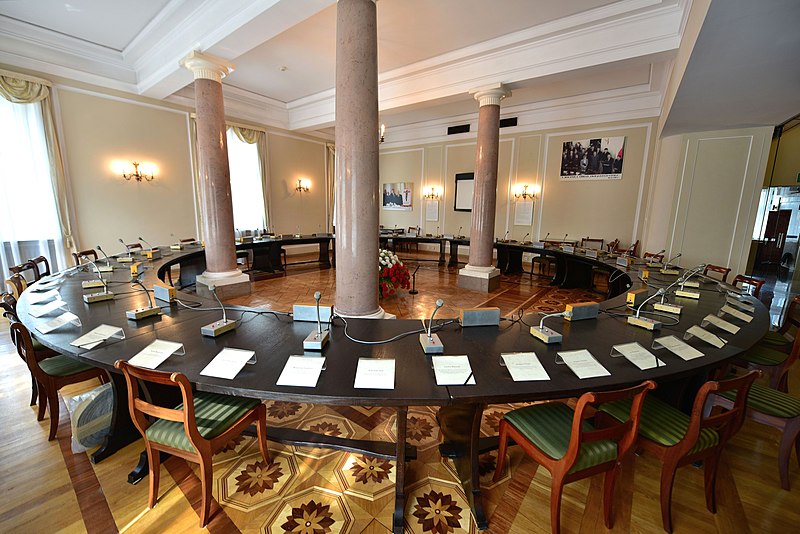05/04/89 30 Years Later: Runder Tisch/Round Table in Polen

A new form of political dialogue
At the end of the 1980s, a rather new approach was making its first appearances on the stage of international high-stakes policy-making: the Round Table. The basic idea today seems so simple, yet nobody really understood the terminology: get all stake-holders together and sit them at a really big table that does away with visual hierarchy. Maybe some associated it with King Arthur’s round table of equals, but as a name for a negotiation format it really was new.
East-Germany later saw its fair share of round tables and they played a crucial role in the process of sounding out the needs, ideas and desires – before we (the West that is) just decided to ignore all that and unify right away without any consideration of the East-Germans themselves. Don’t get me wrong, I’m happy about the unification and most of everything it brought us, but let’s be honest, we could have avoided a lot of bad feelings and serious mistakes that haunt us to this day, if we just took a little more time to accommodate our brothers and sisters. Of course it’s way more complicated than that and there probably was only a very narrow window of opportunity to make it happen at all, but maybe it helps a bit to at least acknowledge this.
What this 1st round table in Poland hashed out was quite impressive by the way:
- Legalisation of the Solidarnosc union
- Free elections for the 2nd chamber of parliament
- Free elections for 35% of the seats in the 1st chamber.
Eine neue Form des Dialogs

The Round Table displayed in the Round Table Hall at the Presidential Palace in Warsaw
(Adrian Grycuk, CC BY-SA 3.0 pl)
Der erste “Runde Tisch” stand in Polen. Bis dahin haben die meisten von und damit eher ein Möbelstück verbunden, geschichtlich interessierte haben vielleicht noch die Verbindung zur Tafelrunde gezogen; aber als fester Begriff für eine Zusammenkunft verschiedener gesellschaftlicher Gruppen zur Gestaltung eines umfassenden politischen Wandels hat das damals kaum einer verstanden.
Umso bemerkenswerter die wichtigsten Ergebnisse dieses Prozesses in Polen:
- Zulassung der bis dahin verbotenen Gewerkschaft Solidarność
- Freie Wahlen zur zweiten Parlamentskammer
- Freie Wahlen für 35% der Sitze in der ersten Kammer

